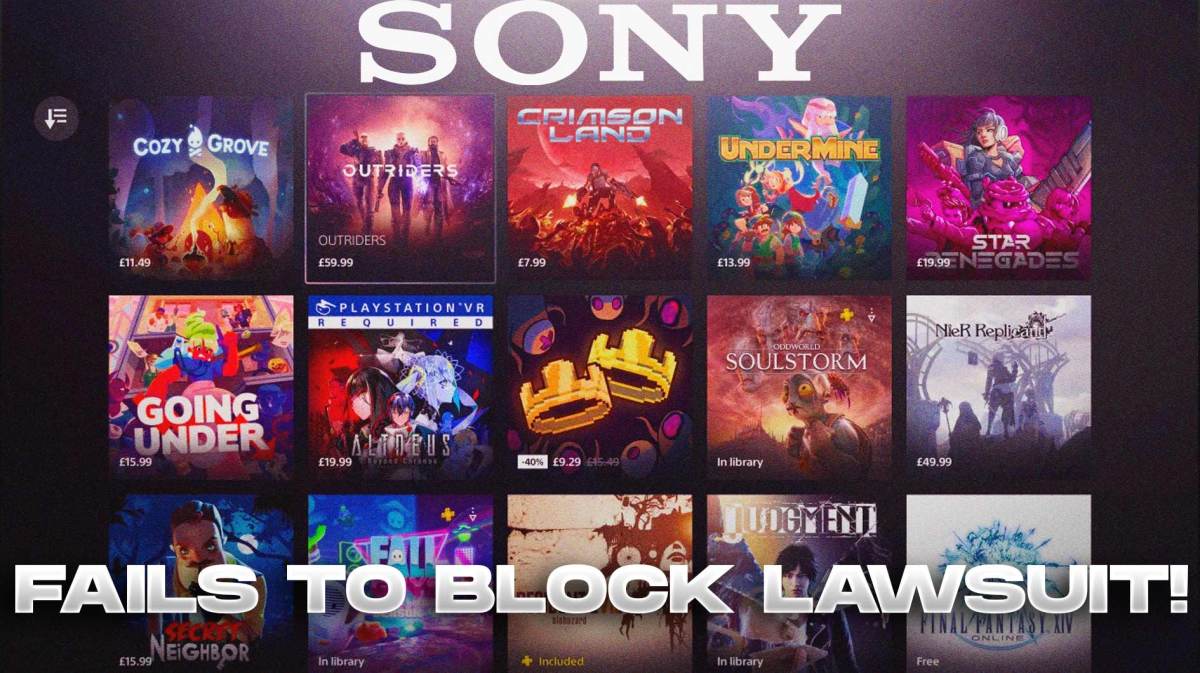In a landmark decision, a London tribunal has ruled against Sony's effort to dismiss a lawsuit over its PlayStation Store pricing policies. The case, filed last year, accuses the technology giant of breaching competition law with its 30% commission on store purchases. This ruling could lead to significant financial repercussions for Sony, with potential damages reaching up to £6.3 million.
The lawsuit, brought to light by Reuters, revolves around Sony's commission policy on its digital storefront, the PlayStation Store. This commission, applied to all purchases, has sparked controversy and debate regarding its impact on both consumers and the broader digital marketplace.
Sony's defense, arguing that the case was fundamentally flawed, was rejected by the Competition Appeal Tribunal. The tribunal's decision to allow the lawsuit to proceed marks a significant setback for Sony, as it opens the door for further scrutiny of its business practices.
Consumer rights advocate Alex Neill, who initiated the lawsuit in August 2022, represents nearly nine million UK consumers in this legal battle. Neill, expressing satisfaction with the tribunal's ruling, stated, “This is the first step in ensuring customers get back what they're owed as a result of Sony breaking the law.”
The crux of Neill's argument lies in the alleged exploitation of PlayStation gamers. He accuses Sony of leveraging its dominant market position to impose excessive prices for digital games and in-game items, a practice that he argues has persisted for years. According to Neill, customers who have made purchases on the PlayStation Store since August 2016 may be entitled to compensation for Sony's alleged anti-competitive behavior.
Neill stressed the importance of addressing this issue, not just for individual compensation but also for setting a precedent in digital market practices. “This unlawful conduct needs to be stopped, and customers should be compensated,” he emphasized.
However, the tribunal clarified that the lawsuit's compensation claims would only extend to purchases made before its filing, excluding any transactions made after.
This case gains additional significance in the context of a broader debate regarding the standard 30% commission charged by several platform holders, including Sony. This practice has been a point of contention in the digital economy and is currently a key issue in the ongoing Epic vs Google antitrust trial in San Francisco.
GamesIndustry.biz reports that Sony has not yet publicly commented on the tribunal's ruling. The outcome of this case could have far-reaching implications, potentially challenging the established norms of digital storefront commissions.
This legal challenge against Sony is part of a growing trend where consumers and smaller developers are increasingly questioning the fairness and legality of the revenue-sharing models used by major digital platforms. The ruling by the London tribunal sets a precedent that could influence future legal actions against other digital storefronts and platform holders.
As the case progresses, it will be closely watched by industry experts, competitors, and consumers alike. The outcome could reshape the digital marketplace, impacting pricing models and the distribution of digital content. This lawsuit, therefore, not only represents a significant challenge for Sony but also a pivotal moment in the evolving landscape of digital commerce.
The ruling serves as a reminder of the increasing scrutiny that large tech companies face over their business practices. As the digital economy continues to grow, regulatory bodies and consumer advocacy groups are paying closer attention to how these companies operate and the impact their policies have on consumers and competition.
Sony, known for its robust gaming ecosystem and large consumer base, will now have to navigate the legal complexities of this lawsuit while maintaining its market position. The case's progression will likely influence the company's future policies and practices regarding the PlayStation Store.
The implications of this lawsuit extend beyond the gaming industry, highlighting the broader challenges and considerations in digital market regulation. It serves as a case study in balancing corporate interests with consumer rights and fair competition in the rapidly evolving digital landscape.



















